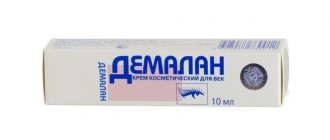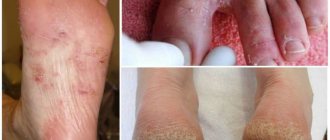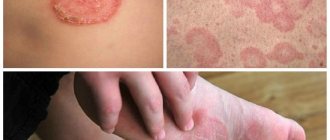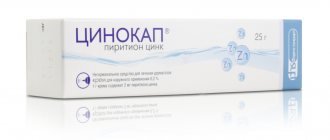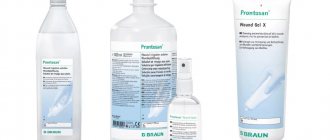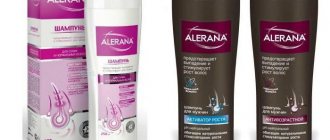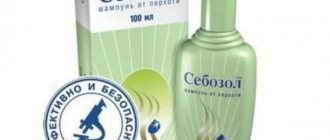Menovazin is a complex drug with a wide spectrum of therapeutic activity. It has antiseptic, antipruritic, distracting, local irritant and analgesic effects. Used to relieve pain associated with various diseases of muscles, joints and nerves. Prescribed for adults and children.
Composition and release form
The drug is available in several dosage forms:
- The solution is colorless, transparent with a pleasant menthol odor. Used for topical use. Packaged in dark glass bottles with different volumes.
- Ointment - intended for external use. Externally white, homogeneous structure with menthol aroma. Sold in aluminum tubes of 40 g and secondary cardboard packaging with attached instructions for use.
The main components of the drug are: menthol, procaine and benzocaine. Excipients: ethyl alcohol in solution and pure water, paraffin, mineral oil, emulsifier in the ointment.
What does menovazin treat, how to use it. Pharmacological characteristics of the drug
Menovazin solution is intended for external use. It consists of several components, each of which complements and enhances the actions of each other.
Composition of menovazine:
- Novocaine;
- Anestezin;
- Menthol;
- 70% ethyl alcohol.
The solution is available in 40 ml glass bottles. Its cost does not exceed 30 rubles.
Menovazin is a budget drug of domestic production, which can be purchased at both a large pharmacy and a small pharmacy. The drug belongs to the group of local anesthetic drugs and is sold without a doctor's prescription. It has a sharp, specific odor that quickly disappears.
Properties of menovazin:
- has a local analgesic effect due to the content of anesthetics (novocaine, anesthesin) - blocks nerve transmission from peripheral parts to the brain;
- has a local irritant effect due to the menthol content - when applied to the skin, it has a cooling effect, reflexively eliminates discomfort and pain;
- has a vasodilating effect at the site of application of the solution due to the content of medical alcohol - increasing the lumen of small arterial vessels improves blood flow to tissues in the application area;
- has an anti-inflammatory effect due to menthol, ethyl alcohol and novocaine.
pharmachologic effect
Menovazine is a combination drug with broad therapeutic activity. It has a clear antipruritic, analgesic, distracting, antiseptic and sedative effect.
The healing properties are due to the quality composition of the product. For example, menthol affects certain receptors that are sensitive to low temperatures. As a result, it causes a feeling of pleasant cold and relieves pain. It also affects the tone of any blood vessels, arteries and veins.
Procaine has an exclusively analgesic effect. Benzocaine causes local anesthesia without provoking vascular tone.
Pharmacological characteristics
- Pharmacodynamic characteristics. This medicine belongs to the combination drugs. Qualitative characteristics are determined by the effect of active components on the human body:
- In accordance with the selective effect of menthol on cold neuro-endings in the skin (receptors), the drug promotes the development of a feeling of cold, the irritating property can change towards slight anesthesia. In a reflexive manner, menthol affects vascular tone in relation to superficial capillaries and vessels of deeper tissues and internal organs.
- Novocaine has a fairly pronounced anesthetic effect on the body. Its action is aimed at the functioning of surface neuroreceptors, that is, it provides superficial pain relief.
The combination of the described ingredients in one product determines the ability to create a reversible disorder in the excitability and conductivity of neural receptors and conductors against the background of direct contact with the ointment, to have an irritating and distracting effect, the basis of which is the interference of excitation of neurocenters and the restructuring of the algodominant, to reduce the excitation of neurofiber membranes, to reduce the volume impact potential, increase the depolarization threshold of the neurofiber membrane, reduce the rate of formation of the ascending phase of the impact potential, reduce the level of excitation in neural cells.
- Pharmacokinetic characteristics. Until now, these properties have not been sufficiently studied.
Contraindications
Absolute contraindications to the use of the drug are:
- Individual intolerance to the active or auxiliary substances of the drug.
- Violation of the integrity of the skin in the areas where the solution or ointment is supposed to be applied.
- Inflammatory skin lesions near or directly on the area where the medicine should be applied.
The drug should be prescribed with caution to women while pregnant, breastfeeding and children. In this case, increased monitoring of patients by a doctor is necessary.
Available analogues
Pharmacists have produced several effective drugs that can replace Menovazin ointment, but their cost does not suit all patients. Dermatologists and traumatologists recommend using the following remedies for treatment:
- Ointment "Apizartron". The product can be used for arthralgia, myalgia, as well as for a warming massage after grueling physical training.
- "Voltaren emulgel." The medication perfectly helps eliminate pain from arthritis, bursitis, and other rheumatic pathologies.
- Cream "Iricar". The drug belongs to the group of homeopathic remedies that are in great demand for the treatment of inflammatory processes of the skin.
Instructions for use of Menovazin
According to the instructions for use, the drug is intended for external use. Depending on the form of release, the drug has a different treatment regimen:
- Solution - rub into the affected area of the skin with smooth massage movements until completely absorbed. The frequency of use is no more than 3 times a day. The duration of the therapeutic course should not exceed 4 weeks. If necessary, the duration of use can be increased.
- Ointment - applied to the surface of the skin to relieve pain or itching. Apply maximum 3 times a day. The duration of the course depends on the type and severity of the diagnosis. The permissible therapeutic dose per day is no more than 9 g.
Menovazin
Registration number: R No. LSR-008061/09
Trade name: Menovazin.
International nonproprietary or generic name: Benzocaine + procaine + levomenthol.
Dosage form: Alcohol solution for external use.
Composition per 100 ml: Active substances:
- Levomenthol - 2.5 g
- Procaine hydrochloride (procaine hydrochloride) – 1.0 g
- Benzocaine (anesthesin) - 1.0 g
Excipient:
- Ethanol (ethyl alcohol) 70% up to 100 ml
Description: Colorless transparent liquid with a menthol odor.
Pharmacotherapeutic group: Local anesthetic.
ATX code: D04AB
Pharmacological action: Combined preparation for external use. Has a local anesthetic effect. Levomenthol, when applied to the skin, causes irritation of nerve endings, dilates the superficial vessels of the skin, causing a feeling of coolness, accompanied by an analgesic effect and relief of itching. Strengthens the anesthetic effect of procaine and benzocaine. Procaine is a local anesthetic with moderate anesthetic activity. Blocks sodium channels, prevents the generation of impulses at the endings of sensory nerves and the conduction of impulses along nerve fibers. Benzocaine is a local anesthetic for superficial anesthesia. Prevents the occurrence of pain impulses at the endings of sensory nerves and their conduction along nerve fibers.
Indications for use: As a local anesthetic for neuralgia, myalgia, arthralgia and itchy dermatoses.
Contraindications: Hypersensitivity to any of the components of the drug, damage to the integrity of the skin or inflammatory skin diseases at the site of intended application (including dermatitis, eczema).
Pregnancy, lactation period, children under 18 years of age: Due to lack of data, it is contraindicated.
Method of administration and dosage: Externally, applied to the skin over the affected area and rubbed or applied to the affected areas of the skin (itchy dermatoses) 2 - 3 times a day. The course of treatment continues depending on the therapeutic effect, but no more than 3 - 4 weeks. If necessary, the course of treatment is repeated.
Side effects: Allergic reactions, contact dermatitis. With prolonged use, dizziness, general weakness, and decreased blood pressure are possible. In these cases, stop using the drug.
Release form: Alcohol solution for external use. 40 ml in orange glass bottles, sealed with polyethylene stoppers and screw caps. Each bottle with instructions for use is placed in a cardboard pack. It is allowed to pack bottles without a pack together with an equal number of instructions for use in a cardboard box.
Storage conditions: In a place protected from light at a temperature not exceeding 25 ° C. Keep out of the reach of children.
Shelf life: 2 years. Do not use after expiration date.
Conditions for dispensing from pharmacies: Without a prescription.
Indications for use
You can use medications for treatment only after consultation with your doctor, as well as a full examination. To avoid adverse reactions, the patient must study the official instructions for use of Menovazin ointment. The price of this product compares favorably with its affordability, due to which it is often included as part of complex therapy. The use of the drug is relevant in the following cases:
- Sprains.
- External hemorrhoids, which are accompanied by pronounced pain.
- Muscle tension after prolonged physical training.
- Fractures. The use of ointment is only available if the plaster does not interfere with the quality application of the product.
- Muscle inflammation.
- An integrated approach to the treatment of arthralgia, myalgia.
- Pinched sciatic nerve.
- Severe pain caused by various degenerative changes.
- Superficial burn of the skin.
- Heel spur.
Reviews from patients indicate that it is possible to effectively overcome muscle inflammation of various natures only if you regularly use Menovazin ointment in combination with other drugs of a similar principle of action.
Adverse reactions
In most cases, the patient’s body tolerates Menovazin ointment well. The composition of the drug in rare cases can provoke the development of undesirable reactions:
- Contact dermatitis.
- Allergic skin rashes, which are accompanied by severe redness and itching.
- Significant decrease in blood pressure.
- Asthenia.
- Increased body temperature.
- Dizziness.
- Nausea.
If the patient experiences adverse reactions, then he should immediately seek qualified medical help at the hospital. The use of the ointment should be stopped.
